Democracy
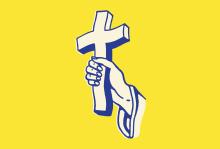
IN LATE MARCH, when Far Right former Brazilian president Jair Bolsonaro returned from self-imposed exile, supporters greeted him with chants of “God, family, and liberty,” harkening back to the motto of the dictatorship that ruled Brazil from 1964 to 1985. Overwhelming political support from evangelical Christians — similar to that received by Donald Trump — had swept Bolsonaro into office in 2018. Both men repaid this support by moving their respective embassies from Tel Aviv to Jerusalem, actions that were long sought by conservative Christians in the West, signaling a rejection of Palestinian aspirations for independence.
Brazil is only one of the countries in Latin America where right-wing evangelical Christians have become a political force. Today, evangelicals constitute about 27 percent of Brazil’s population, compared to about 25 percent in the United States, according to the Pew Research Center. As the number of Latin American evangelicals has soared in recent years, Christian Zionism has also risen as a political and cultural force in the region.
Christian Zionists believe that support for the modern secular state of Israel is a scriptural obligation with theological ramifications for the “end times.” Too often Christian Zionists defend Israel while perpetuating Christian supremacy and antisemitism; they remain ignorant of the persecution of Jews throughout history. Adopting uncritical, religiously motivated support for the secular state of Israel, Christian Zionists provide cover for Israel’s internationally recognized human rights abuses against Palestinians. The embrace of Christian Zionism threatens to be as damaging to marginalized communities in Latin America as it has been to Palestinians.
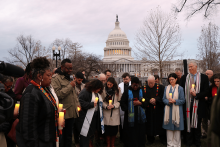
“Help us find the courage to reject the unholy and harmful ideologies of white supremacy and Christian nationalism, and to not be silent about the crisis of our democracy,” Mary Novak prayed.
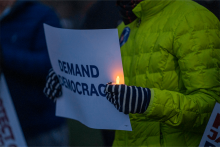
In the immediate aftermath of Jan. 6, 2021, I naively believed that the violent attempt to overturn the 2020 election outcome would serve as a breaking point for the nation and the Republican Party. Despite the party’s anti-democratic slide, including so many embracing the lie that the 2020 election was stolen, I thought the collective horror of the day — felt across the political spectrum — would awaken everyone to the danger that former President Donald Trump and his enablers posed to our democracy. Of course, we now know that isn't what happened.
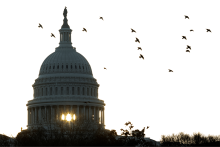
Voting, while essential, is just the starting point when it comes to following the mission Jesus outlines in his initial sermon in Nazareth to “bring good news to the poor … and proclaim the year of the Lord’s favor” (Luke 4:18-19). Civic discipleship recognizes that in our democracy — imperfect as it may be — fulfilling Jesus’ call to bring God’s reign of justice, righteousness, and inclusive love closer to earth requires that we are actively and at times courageously engaged in our politics. The marriage of our civic participation with being followers of Jesus is rooted in the conviction that our deep civic engagement is because of our faith, not despite it.

Yet, in this charged atmosphere, Jesus calls us to be peacemakers — regardless of our political leanings or party affiliation. So, what does peacemaking look like during the upcoming midterms?
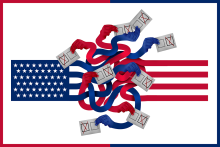
JUST AS FOR 50 years Ohio was a bellwether for presidential elections, since 2011 North Carolina has become a testing ground for Far Right legislation aimed at controlling federal election administration. In his book Indecent Assembly, author Gene R. Nichol says North Carolina is now “a laboratory for extremism.”
In September, the Supreme Court included on its docket a Republican-backed case out of North Carolina that pits voters against a state legislature that seeks to greatly increase its power over elections by limiting the ability of the state judiciary to review the actions of the legislature. This could potentially unbalance the fundamental checks and balances essential to a functioning democracy by giving one body total control over a function of government.
While the specific case of Moore v. Harper deals with whether the North Carolina state Supreme Court has the power to strike down state legislation that produced illegally gerrymandered voting districts, the federal Supreme Court will deliberate on whether the U.S. Constitution’s election clause, the primary source of constitutional authority to regulate elections, prevents a state judiciary from ordering a state legislature to comply with federal election laws.
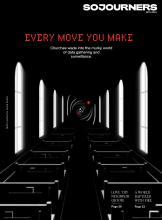
How do marketing techniques, such as surveillance and data gathering, fit with the mission of the church?
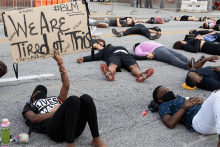
I know I’m not alone in feeling exhausted. In 2018, More In Common — a nonprofit that researches what’s driving political polarization — found that two-thirds of Americans share a series of characteristics that make them a part of what they call the “exhausted majority.” This group of people is “fed up with the polarization plaguing American government and society,” feels forgotten in the public discourse, and often has flexible views that don’t fit consistently in the Left/Right binary. Yet, they believe we can still find common ground. Sound familiar?

In his new book, We Need to Build, Patel seeks to inspire others to build with him instead of just criticizing policies and structures they dislike. The book draws on Patel’s work with Interfaith America and considers what we can learn from good (and bad) institutions across the globe.

Zen, a 90-year-old former bishop of Hong Kong, was questioned for several hours on Wednesday at the Chai Wan Police Station close to his church residence, before being released on police bail.
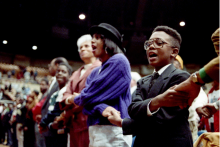
I remember the flood of emotions I felt almost a year ago when I heard that the major news networks were calling the 2020 election results: overwhelming relief and renewed hope. Far beyond a victory for then-to-become President Joe Biden, it felt like a victory for our democracy — and an imperative to resuscitate, revitalize, and reinvent that democracy.
Fast forward a year: I’m filled with a festering weariness and escalating heartache.
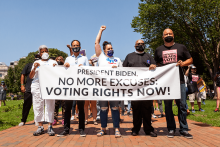
The House of Representatives passed HR 4, known as the John Lewis Voting Rights Advacement Act, 219-212, which faith leaders and other voting rights advocates believe is a crucial step in voter protection.
“Tireless hours by members of Congress and civil rights leaders have brought the issue of federally mandated voter suppression to the forefront of conversations around American democracy,” Rev. Al Sharpton said in a news release through March On For Voting Rights. “This is only the start of the fight to move farther and farther away from the Jim Crow Era.”
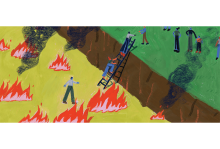
THE PEOPLE HAVE spoken, democracy has worked, and it is time for a peaceful transfer of power. Joe Biden and Kamala Harris have fairly won the presidential election, and I am hopeful about their commitment to both healing and change. We should accept the results, and call upon our faith communities to do the same, in order to help our nation move forward together.
We should be grateful for and inspired by the ways our faith communities worked for free, fair, and safe elections in 2020. Thousands of multiracial and interfaith poll chaplains helped to protect vulnerable voters from both suppression and intimidation at the polls and helped secure this election.
Racism was recognized as a religious issue in this election—and we must commit to a much deeper, and even uncomfortable, conversation in the body of Christ about the great and painful divisions between white Christians and believers of color that this election has again revealed. Addressing systemic racism, economic injustice, inhumane immigration policies, and climate change—all of this is required as expressions of our faith. Let us begin with healing our nation from the COVID-19 pandemic and then from our polarized divisions with grace and love and the reconciliation that comes from working together to build a more racially just and inclusive America.
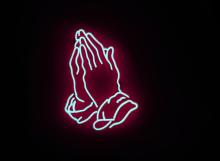
As Election Day nears, one thing is clear: We all need as many prayers as possible. After you vote, while you wait in line to vote, or while you anxiously tune in as votes are tallied, here are places that you can pray on Election Day.
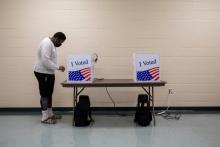
Racism is on the ballot next week. Democracy is on the ballot next week. These two things two are inextricably linked because racism has disfigured American democracy from the founding of our nation. The road to a more perfect union has been long and uneven. And this road requires that we continually become a more perfect democracy and more just nation. And while our democracy will never be perfect, we must continually defend the rights, institutions, and laws that help safeguard our freedoms and advance the common good. Increasingly this election represents a test of whether we embrace and will work to realize a truly inclusive, multiracial democracy with liberty and justice for all.

1. Character matters
In 2016, we heard the recording of Donald Trump bragging that he could grab women by the genitalia and kiss them without consent. This reveal of sexual abuse was a blinking red warning sign: “No character!” But most white American Christians voted for him anyway. Now hundreds of thousands of Americans are no longer with us. Children are dead, separated from their parents, neglected and abused in our detention centers. Police continue to kill unarmed Black people with impunity. Evidence shows that wherever there is violence against women, there will also be violence against ethnic minorities and the land. Character matters.
2. Our votes matter
If you ever doubt that, remember 2020: body bags, 175 cities on fire, food lines, closed businesses, fears for the future, the president having tear gas shot into a crowd so he could walk across the street and hold a Bible in front of a church he doesn’t attend. Let us learn that a non-vote is a vote for the winner. In a democracy, votes have the power to bless or curse millions. It is our civic duty to approach elections as informed citizens. It is our Christian duty to leverage elections to protect the least of these.

These types of failures in the voting process may become additional tools in the arsenal of voter suppression, and the Black community must be prepared.
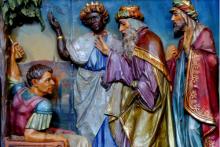
Mysterious people with political connections arrived from a country off in the East. They brought news the ruler did not like. There was a new claim to the throne. An effort was underway to remove him and install another ruler. King Herod wanted to dismiss the claims as “fake news” and a “hoax” — not because the intelligence report was inaccurate, but simply because he didn’t like the news. These Magi, after all, had done their research.

I REMEMBER THE EXACT DAY I discovered that some conservative Christians are not all that into democracy. It was 20 years ago. My daughter asked me for help with her social studies homework. I discovered that her Christian school taught a neo-Puritan civics curriculum, which proclaimed that God’s design for human government is rule by “godly Christian men” applying scripture under the sovereignty of God. I was shocked.
In the Trump era, we again witness a conservative Christian flirtation with authoritarianism. These conservative Christians compare Donald Trump to Cyrus of Persia—both authoritarian rulers, both “friendly” to but not part of God’s people, both supposedly used by God—and Trump is lauded as the president of divine providence in shlock films such as Liberty U.’s The Trump Prophecy.
Meanwhile, a quote attributed to Russian Orthodox priest and monarchist St. John of Kronstadt that “in hell there is democracy, in heaven there is a kingdom” is making the rounds on social media, occasioning much comment leaning in the direction of authoritarian rule. John of Kronstadt died in 1908 before the Russian revolution and likely associated democratic tendencies with atheism.
